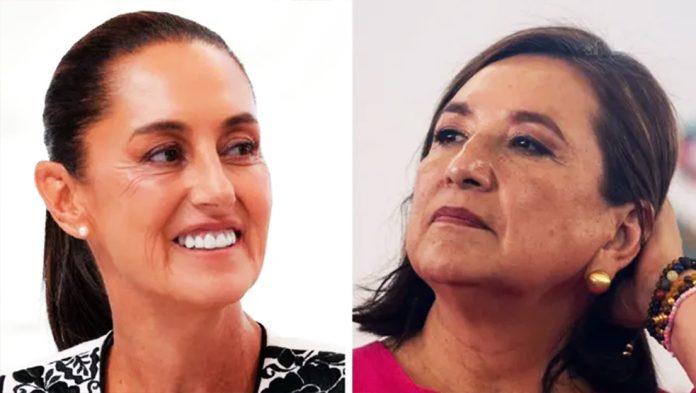
Mexicans are voting in an election which is almost certain to see the country’s first female president elected. Both the front runner, Claudia Sheinbaum, and her main rival, Xóchitl Gálvez, are far ahead in the polls of the only male candidate, Jorge Álvarez Máynez.
Voters will also elect all members of Mexico’s Congress and governors in eight states, as well as the head of Mexico City’s government.
The campaign has been overshadowed by violent attacks, which the government says have resulted in more than 20 local candidates being killed across Mexico, although private surveys put the total at 37. Ms Sheinbaum, a 61-year-old scientist who served as mayor of Mexico City from 2018 to 2023, has the backing of the outgoing president, Andrés Manuel López Obrador.
Mr López Obrador, who has been in power since 2018, cannot run for the top office again, as under Mexico’s constitution, presidents are limited to a single six-year-term.
The popular leader – recent polls suggested he had an approval rate of close to 60% – has instead thrown his weight behind Ms Sheinbaum, who is part of his Morena party.
While many of the promises President López Obrador made upon taking office have remained unfulfilled, his efforts to reduce poverty and help elderly Mexicans have been popular with beneficiaries of these social programmes.
Having the backing of the president may have considerably widened Ms Sheinbaum’s base of voters, but it has also raised questions about how independent she is of the sometimes overpowering leader.
Ms Sheinbaum has stressed that she is very much her own woman, while at the same time promising to continue building on what she says are Mr López Obrador’s many achievements.
Their party, Morena, boasts about how millions of Mexicans have been lifted out of poverty during the past six years.
Morena says the number of people living in poverty is dwindling thanks to its policies, such as more than doubling the minimum wage.
Credit: bbc.com








